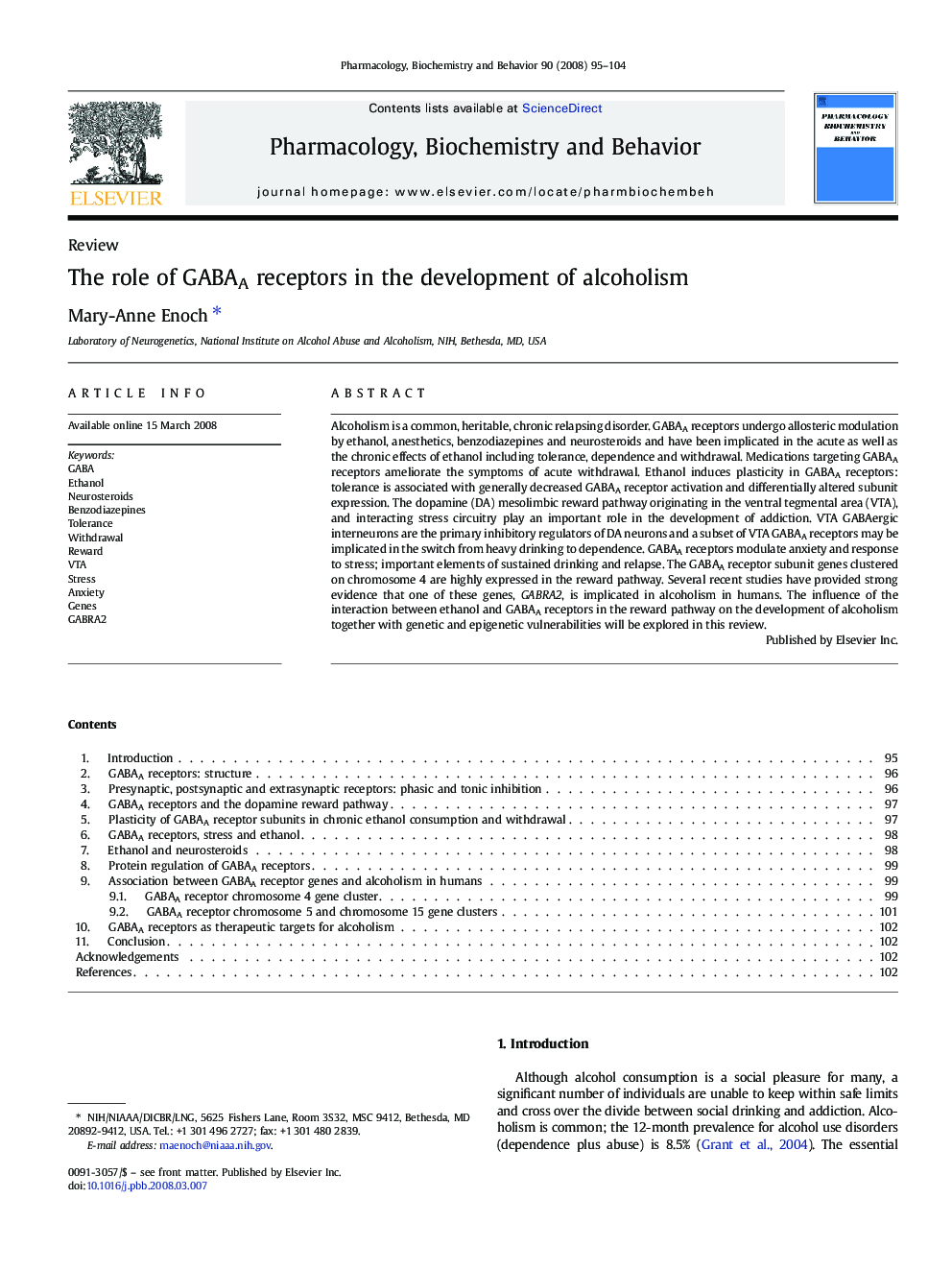| کد مقاله | کد نشریه | سال انتشار | مقاله انگلیسی | نسخه تمام متن |
|---|---|---|---|---|
| 2013985 | 1067138 | 2008 | 10 صفحه PDF | دانلود رایگان |

Alcoholism is a common, heritable, chronic relapsing disorder. GABAA receptors undergo allosteric modulation by ethanol, anesthetics, benzodiazepines and neurosteroids and have been implicated in the acute as well as the chronic effects of ethanol including tolerance, dependence and withdrawal. Medications targeting GABAA receptors ameliorate the symptoms of acute withdrawal. Ethanol induces plasticity in GABAA receptors: tolerance is associated with generally decreased GABAA receptor activation and differentially altered subunit expression. The dopamine (DA) mesolimbic reward pathway originating in the ventral tegmental area (VTA), and interacting stress circuitry play an important role in the development of addiction. VTA GABAergic interneurons are the primary inhibitory regulators of DA neurons and a subset of VTA GABAA receptors may be implicated in the switch from heavy drinking to dependence. GABAA receptors modulate anxiety and response to stress; important elements of sustained drinking and relapse. The GABAA receptor subunit genes clustered on chromosome 4 are highly expressed in the reward pathway. Several recent studies have provided strong evidence that one of these genes, GABRA2, is implicated in alcoholism in humans. The influence of the interaction between ethanol and GABAA receptors in the reward pathway on the development of alcoholism together with genetic and epigenetic vulnerabilities will be explored in this review.
Journal: Pharmacology Biochemistry and Behavior - Volume 90, Issue 1, July 2008, Pages 95–104